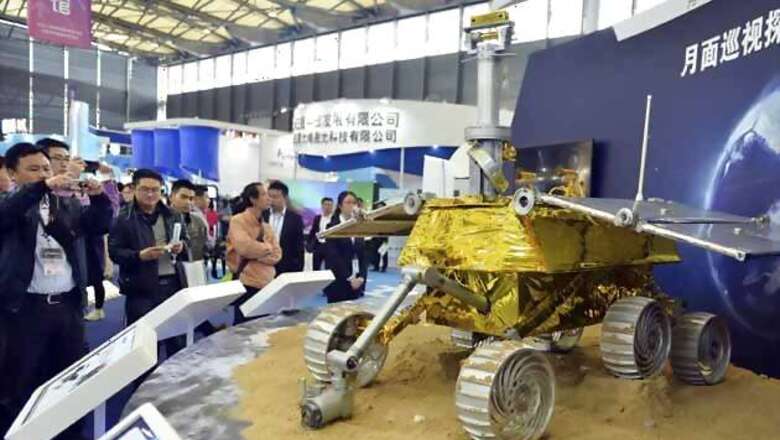
views
China will land its first probe on the moon in early December which will deploy a buggy to explore its surface, an official said on Tuesday, marking a major milestone in the country's space ambitions.
China has already photographed the surface of the moon to prepare for the landing, said a spokesman for the State Administration of Science, Technology and Industry for National Defense.
In 2007, China launched its first moon orbiter, the Chang'e One orbiter, named after a lunar goddess, which took images of the surface and analyzed the distribution of elements.
The lunar explorer buggy was named "Yutu" in a public vote. "Yutu" means jade rabbit, a reference to Chang'e pet rabbit in folklore.
"Chang'e Three's mission requires mastering many key technologies. The technical difficulties and the risks involved in carrying out the mission will be high," spokesman Wu Zhijian told a news conference, carried live on state television.
"In taking on the mission to land on the moon, Chang'e Three will help China fulfill it's lunar exploration dream, it's space dream and the Chinese dream," said Wu.
Scientists will aim to carry out a soft landing and the buggy will rove around on the moon's surface. Scientists will also and test deep space communication technologies, Wu added.
Advancing China's space program has been a priority for the leadership, with President Xi Jinping calling for China to establish itself as a space superpower.
Scientists have discussed the possibility of sending a man to the moon some time after 2020.
China successfully completed its latest manned space mission in June, when three astronauts spent 15 days in orbit and docked with an experimental space laboratory critical in Beijing's quest to build a working space station by 2020.
China is still far from catching up with the established space superpowers, the United States and Russia, which decades ago learned the docking techniques China is only now mastering.
Russia successfully carried out its first soft landing of a lunar probe in 1966.
Beijing insists its space program is for peaceful purposes, but the US Defense Department has highlighted China's increasing space capabilities and said it was pursuing a variety of activities aimed at preventing its adversaries from using space-based assets during a crisis.
China says it will share the technological achievements of its manned space program with other nations, especially developing ones, and will offer to train astronauts from other countries.
















Comments
0 comment